Medicines360 has the unique distinction of being the longest-standing nonprofit pharmaceutical organization that has product available in the U.S. market. Its inception was an industry innovation, and its survival has required it to push boundaries and defy traditional definitions — all in service of improving health equity.
For the Medicines360’s team, the value of this work lies in having broadened women’s access to one of the most effective forms of reversible contraception — access that the market was simply not delivering. The proof is in the numbers: as of January 2022, more than 369,000 units of our hormonal IUD product have been distributed at a deeply discounted price to approximately 2,500 safety net clinics and hospitals in the US. And patients without insurance have saved nearly $200 each when prescribed our product instead of another hormonal IUD[i], helping to create more equitable access for historically underserved communities across the country and enabling increased autonomy over their health, their lives, and their futures.
Over our 13-year history, we have always held our mission as our north star. Along the way, we have proven to the U.S. pharmaceutical industry, lawmakers, safety net providers, and — most importantly — patients, what a nonprofit pharmaceutical organization can achieve for public benefit. As a values-led organization, we believe in the virtues of collaboration and transparency. Because of this, we are excited to report how we achieved our goals and the hurdles we faced along the way. While we are proud to have catalyzed a new path for nonprofit pharma in the U.S., our dream is for many more organizations that develop their own innovative solutions to emerge and expand the potential of the nonprofit pharmaceutical model further than we have yet to imagine.
That’s why today, we are proud to release the case study documenting our journey to this point, “Nonprofit Pharma, Advancing A New Model for Equitable Access to Medicines .” Developed in collaboration with our partners at Waxman Strategies, this case study demonstrates critical lessons learned from bringing a branded product to market in the U.S., highlights barriers in the current healthcare system that impede the sustainability of nonprofit pharma, and lays out policy solutions that can unleash the industry’s full potential.
Specifically, this report:
- Describes each phase of Medicines360’s process — from responding to a market need through product commercialization — to help readers better understand the strategy, effort, and cost required to bring a branded drug to market in the U.S.
- Examines major barriers encountered in the drug development and approval process and identifies if/how those barriers are unique to nonprofits
- Presents policy recommendations to address identified issues in the current U.S. drug development system that would allow nonprofit pharmaceutical organizations to better fulfill their missions to both increase access to drugs and lower drug prices
We invite you to learn more by reading the M360 case study and reaching out with any questions that may arise.
Medicines360 conducted this research in collaboration with Waxman Strategies with support from Arnold Ventures. Medicines360 is a nonprofit global pharmaceutical company focused on expanding healthcare access for women and is the developer of a hormonal IUD approved for use in the U.S. and 7 countries around the globe.
[i] Internal M360 data on file.

